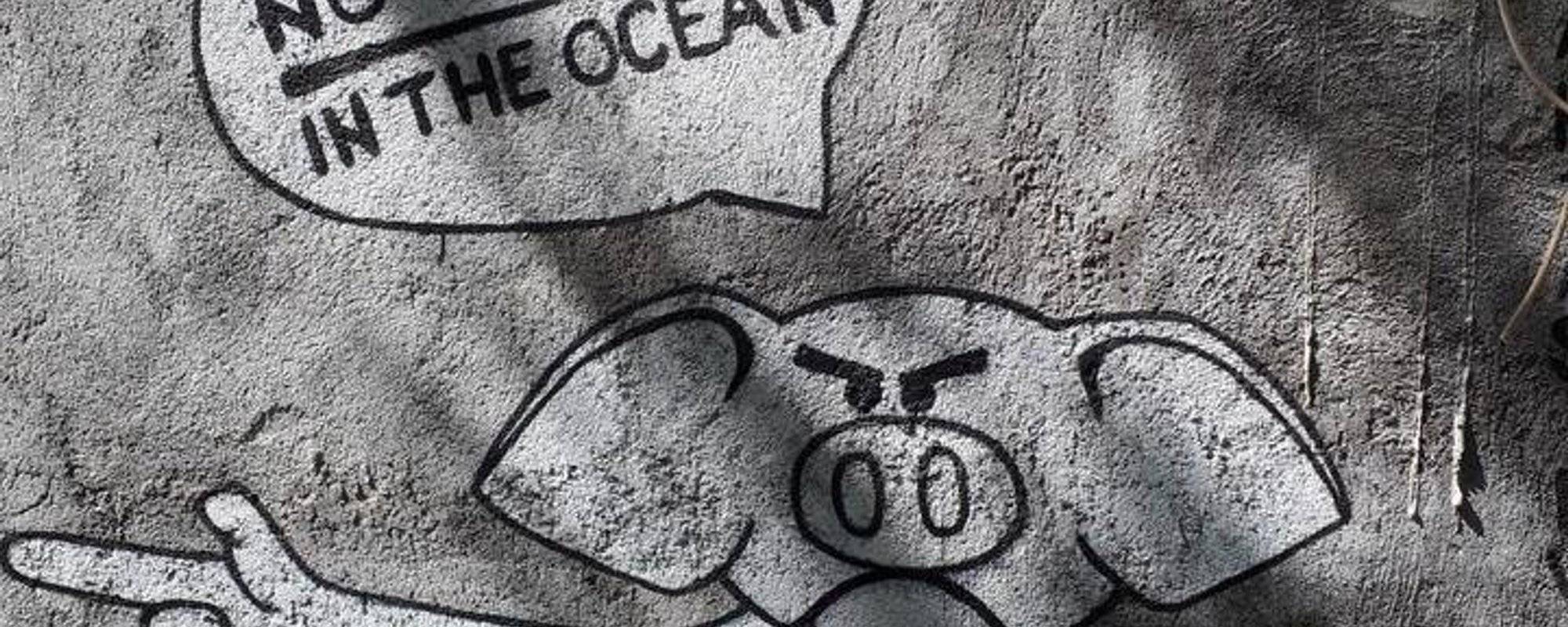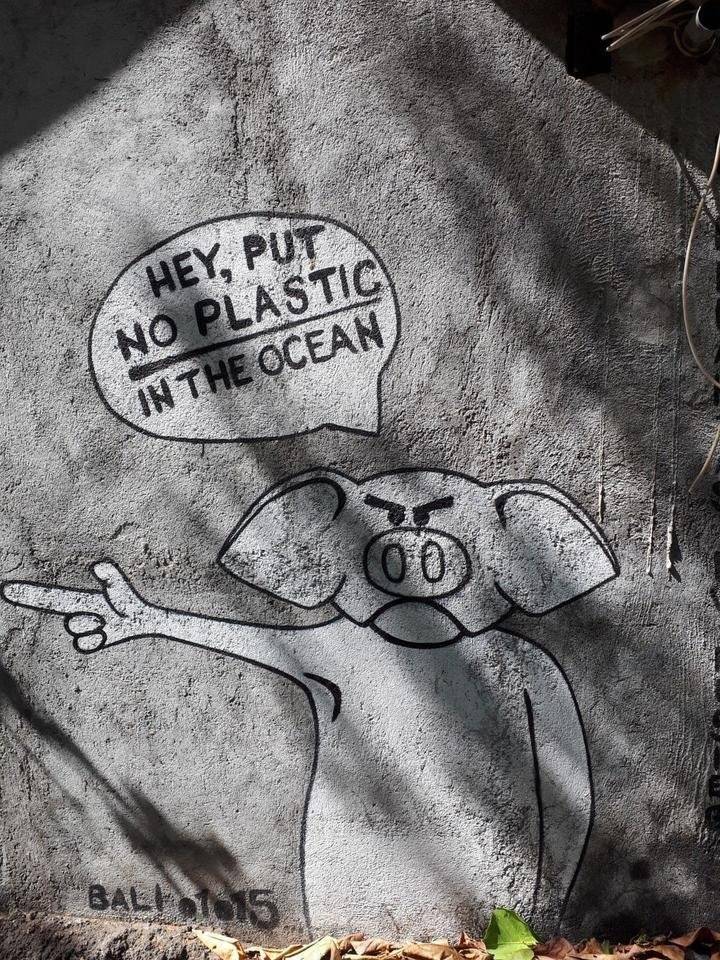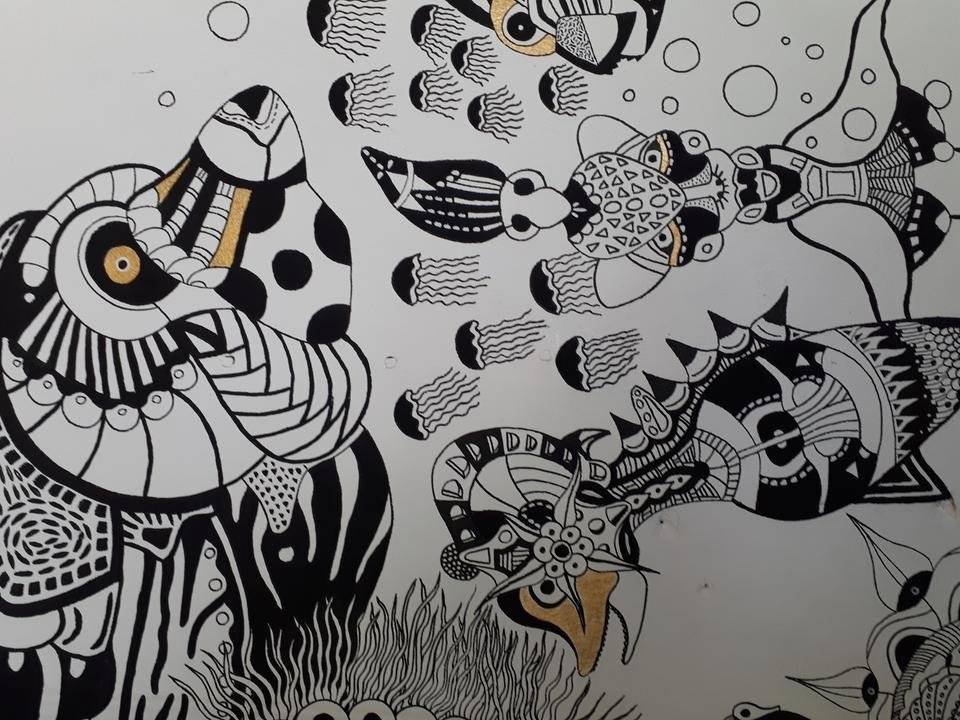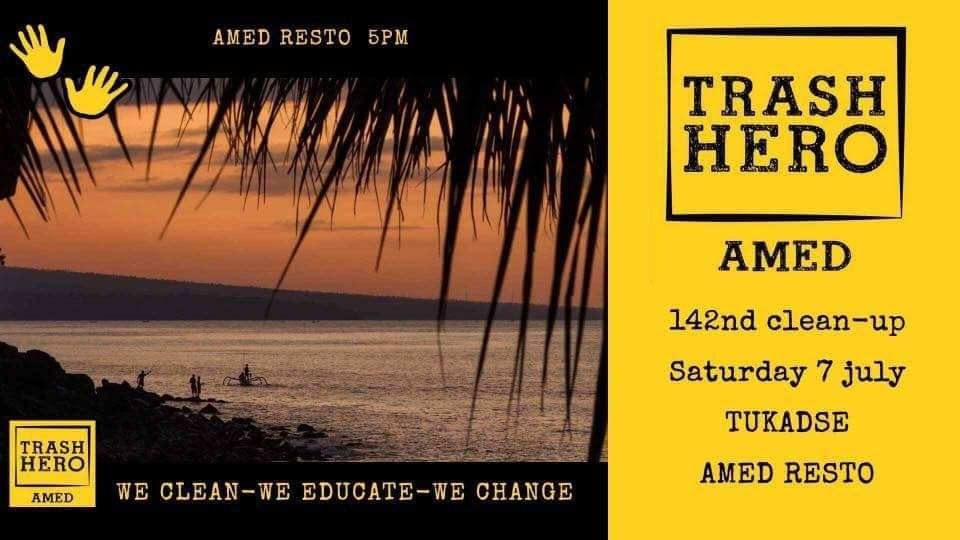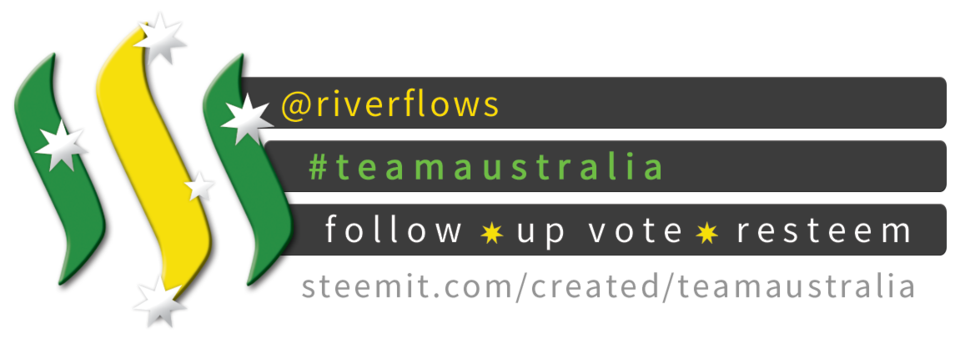Last year we swum at the beautiful Manta Point in Nusa Penida, Bali, a stone's throw from where we are now. We weren't blessed by the mantas - perhaps it was the wrong tide, or the wrong moon.
However, we're familiar with the waters that British scuba diver filmed in the video below, which our free diving instructor shared on social media today. I can't watch it without feeling incredibly ill:
It's impossible for us not to notice the plastic waste in Bali - great swathes of it line the roadside, and although tourist areas like Amed work to keep the beaches and streets clean for tourists, we notice little bits of it here and there - chocolate wrappers floating in the pebbles close to shore, a torn shred of a plastic bag that looms like jellyfish. The waters are generally clean, like the roads are generally clean, and one tends to block out these shreds of nightmarish evidence that the beautiful world we're visiting isn't quite perfect after all - and in fact, is quite dystopian.
And it's not even the rainy season - from December until February or so, there is so much rubbish washed up on some resorts they post signs apologising for the incovenience, and teams clean tons of waste from the beach. The video above was filmed during the rainy season - had we visited Manta Point then, I don' think we would have ever returned to Bali at all. But it's not just Bali that has the problem - Indonesea and much of Asia has always has a rubbish problem.
The effect on the rays are devastating:
A new study by researchers from Australia, Italy and the US have found tiny plastic particles are a particular threat to "filter-feeding" animals like the manta rays near Bali, which can swallow up to 90 pieces every hour. Murdoch University lead researcher Elitza Germanov said microplastics — particles smaller than five millimetres long — contain toxic chemicals that, if ingested, could alter biological processes in the animals, such as growth, development and reproduction. "We are still trying to understand the magnitude of the issue," Ms Germanov said. "Microplastic contamination has the potential to further reduce the population numbers of these species, many of which are long-lived and have few offspring throughout their lives."
We've been told this for years, us Australians - we know that microbeads in cosmetic products never break down in the sea and affect the sealife, we know that ringpulls on sixpacks of stubbies end up wound round the legs of turtles, we know that plastics never, ever break down in the ocean. This drives most of our consumer habits back home, if you care enough. Although large companies like Coles are taking steps to do their bit, such as not supplying single use plastic bags from the start of this month, I fail to see why we don't mandate against plastic packaging for food products at all (why the fuck do I need a lemon on a polysterene tray wrapped in clingfilm??) and it makes me angry that it's money and media marketing that seems to have far more sway than the environment.
We might know all this stuff, but it seems that the Balinese are years behind us in environmental education. It's getting better, of course - the sign above that shows a pig with a speech bubble saying 'hey, put no plastic in the ocean', attests to that. Local community groups are also fantastic at cleaning up, recycling and educating - in Amed, we were going to join with the Trash Heros to do some beach cleaning, but then I got really ill, and missed it:
Two weeks ago they cleaned up 54 kg from one beach alone. Thats nuts! But it's really encouraging that at least some changes are happening. I was encouraged when I went to a local pharmacy that actually asked me if I wanted a bag - of course I said no - and he said 'Good. Things are getting better' which was a nice conversation to have.
I can't help but get a little annoyed at Western tourists that come here and complain about the rubbish, though, when I see them drinking out of plastic bottles, enjoying their Coca Colas with plastic straws and carrrying their shopping in plastic bags. Do they not see themselves as part of the problem?
When we got to Bali, the first cab we jumped in gave us two bottles of water, which we declined. In the hotel, we would have been given two fresh bottles of water every single day if we drank the water there. If we don't decline a plastic bag, we aren't offered a choice - it's just given. Surely the more tourists that decline plastics would give a quiet clear message that it would be a waste of time to supply us with it in the first place?
Ready to Blog & Earn?
With TravelFeed, easily start your own travel blog and earn as you go. It's the smart platform for travelers who want to profit from their passion. Create a free account
In Amed, things were a little different - in one place, they didn't give us water, but there was a water filtration fountain just on the road that we'd fill our bottles up with. In the other place, there was a free water filter in our room. Most restaurants or hotels will happily fill our water bottle with filtered water and we also carry our own portable water filtration kit with us just in case, which we've used on a few occasions. We carry our own recycling bags brought from home and we ask for no straw when we order a drink (I wouldn't drink out of the bamboo ones either - they just get re-used and are a breeding ground for e-coli).
My point is, I don't have the solutions for the waste that is already around, nor am I around for long enough to join Trash Heros or other grassroots movements here to affect change. But as a tourist, I can sure as hell be responsible for the waste I consume and do small things that make my footprint on this beautiful island as small as possible.
Just because we're on holiday, doesn't mean that we should take a holiday from our responsiblity to care for this incredible planet of ours.
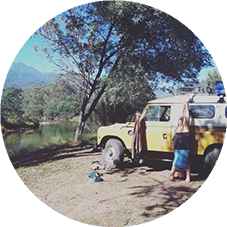
Don't Forget: Get Travel Health Insurance!
To make your trip a worry-free experience, TravelFeed recommends SafetyWing Nomad Insurance. It provides comprehensive health coverage while you travel, so you can focus on exploring, not the unexpected. Get a quote here
Want to find more quality posts about helping the Earth and humanity and generally making the world a better place? Check out the #ecotrain and #tribesteemup trails, and consider adding them to your autovoting. Please ask if you're unsure what this might mean for you.
You can read about the 8 Pillars of TribeSteemUp here
Travel Resources
Recommended by TravelFeed
Flights: We recommend checking Kiwi.com to find the best and cheapest flights .
Accomodation: Find great stays on Booking.com, Agoda and Hostelworld.
Travel Insurance: Medical emergencies abroad can be pricey, but travel health insurance is not. We always use SafetyWing for affordable and reliable coverage.
Car Rental: For hassle-free car hiring, DiscoverCars is our trusted choice with a wide selection of vehicles.
Internet: Got an eSIM compatible phone? Airalo is perfect for reliable internet access during your trip. Just install it before you go, and you're set!
Day Trips & Tours: We recommend GetYourGuide for a variety of well-organized and enjoyable activities.
Travel Planner: Need a hand planning? Our free travel planner chatbot is your personal guide. Chat now.
Disclosure: Posts on TravelFeed may contain affiliate links. See affiliate disclosure.
